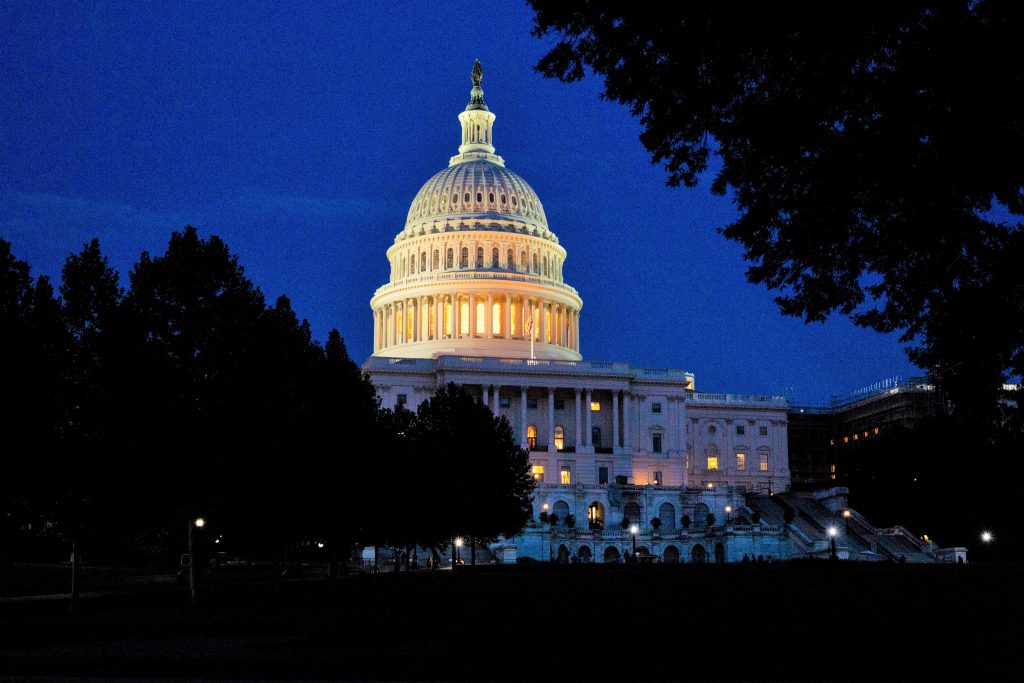By Allen R. Gray
NDG Contributing Writer
The act of cloture is the political equivalent of abruptly hanging up the phone to quash a conversational topic you’d rather not hear. Cloture is the guillotine that brings sometimes idle senatorial prattle to an immediate and brutal halt. A filibuster is when a senator might elucidate incessantly on a topic that might not even be relevant. That’s the idle senatorial prattle an act of cloture seeks to halt.
When it comes to blocking a proposed piece of legislation on Capitol Hill without ever having considered the bill’s merit, the filibuster, together with a subsequent act of cloture, has proven to be a most formidable foe to politicians hoping to pass a transformative piece of legislature.
Before 1917, an ambitious and determined senator was allowed to filibuster, which meant one might prolong the debate, thus delaying or preventing a vote on a bill or some other debatable topic in question. The filibuster allowed a politician to prattle on incessantly in a prolonged debate to delay or prevent a vote on a proposed bill.
Then came 1917, when the Senate adopted a rule to allow a two-thirds majority vote to end a filibuster. That terminating procedure is known as “cloture.” Eventually, two-thirds vote required in a two-party political system proved to be far too stringent.
The filibuster to end all filibusters came courtesy of a defiant sophomore senator from South Carolina, a 54-year-old Strom Thurmond. Prior to his filibuster, Thurmond essentially trained his mind and body to endure the rigors of the task as an athlete might train prior to a marathon.
And so it began…

On August 28, 1957, at 8:54 p.m., Thurmond began his “speech” that would prevent a vote on a bill that he and other Southern senators vehemently opposed. Thurmond occupied the time by reading a number of laws and other legal documents he argued would prove the proposal unnecessary and unconstitutional. Thurmond’s inconclusive prattling carried on until 9:12 p.m. the next day, a total of 24 hours and 18 minutes. That is a Congressional filibuster record that still stands to this day.
What was the proposed legislation that Thurmond so vehemently opposed and that compelled him to risk health and sanity so that the bill might die?
That bill was the Civil Rights Act of 1957, which was designed to protect and secure African Americans’ right to vote. Certainly, the 15th Amendment (1870) granted men of all races the right to vote, voter suppression at the state level—in the form of erroneous laws, voter tests, poll taxes, and other onerous laws—successfully ended or greatly crippled Blacks from voting in local and federal elections.
Thurmond called the Civil Rights Act of 1957 “cruel and unusual punishment.”
So, in 1975 the Senate reduced the number of votes required for a cloture procedure from two-thirds of senators voting to three-fifths of all senators, or 60 of the 100-member Senate to prevent other would-be record breakers from giving it a go.
Today, with Senate seats being polarized and evenly divided at 50-50, Democrats are saying that even the 60-vote filibuster rule is undemocratic, racist and undermines the needs of people of color. Democrats argue that the filibuster needs to go.
The filibuster is a killer of righteousness and a slayer of what might be best for America and the American voter. Not only does a filibuster dissuade good-intentioned voters, but this useless and outdated process has also left many a valid and noble cause in its wake. Other victims of the filibuster and cloture idiocy are: It forces the senate into inaction, and it is used to obstruct the passage of popular legislation for good cause or no cause at all.
The filibuster has its admirers, nonetheless. In fact, there are nearly as many Democratic senators that find the filibuster attractive as there are Republican senators. The original intent of the filibuster was pure in nature. It was supposed to give some voice to the minority party to assuage the tyranny of the majority party and bridge a path toward compromise. Albeit, what the filibuster has become, though, is the more onerous part of American politics, which is something other than attractive.
In the wrong hands, the filibuster becomes a maliciously divisive, destructive, and devious tool used exclusively to halt progress merely to spite a political opponent—and despite the vital needs of America’s poor and underserved citizens.




